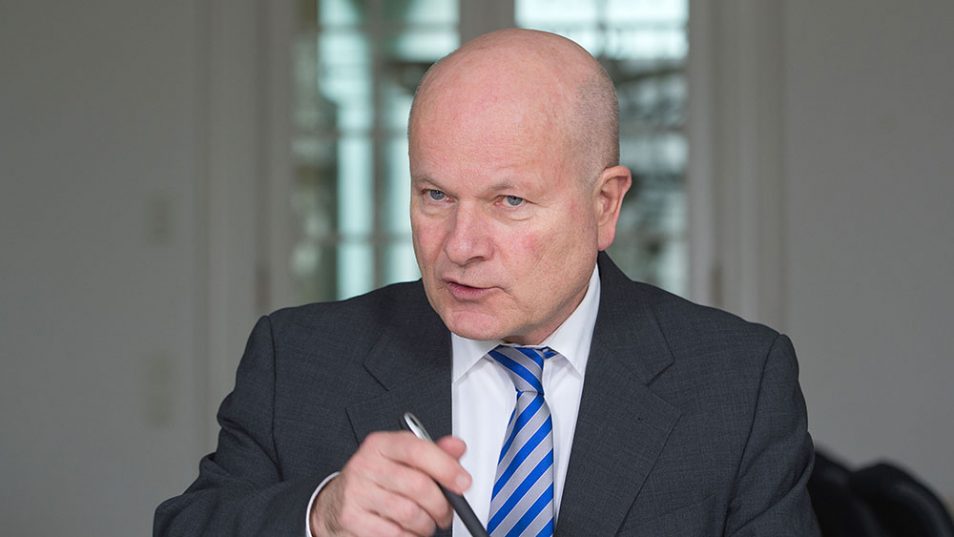“Brazil offers excellent conditions for cooperations”
 © Iris Maurer
© Iris Maurer
Dr. Jochen Hellmann, Director of DWIH São Paulo, talks in an interview about the anniversary year 2022, the recent enormous increase in Brazil’s importance as a partner and Germany’s need to catch up in terms of its knowledge.
Dr. Hellmann, as you look back on 2022, what were some of the key events for DWIH São Paulo?
There are three that spring to mind: the DWIH’s tenth anniversary in São Paulo, the return to in-person gatherings and the Young Innovators Week Brazil – the latter being just one example of the renewed interest in Brazil and the expansion of our activities to include entrepreneurship. The anniversary gave us the chance to pursue a whole range of high-profile activities, which also attracted a lot of attention because the DAAD was celebrating the 50th anniversary of its regional office in Brazil at the same time. This generated a lot of interest in Brazil. As the pandemic has faded, we’ve also been able to invite people to face-to-face receptions and hold in-person events again, with good hygiene concepts. And our anniversary reception back in February 2022 was very well attended, too.
Why are face-to-face events so important for DWIH São Paulo?
In Latin America in general, physical encounters are much more important than in many other parts of the world. That’s something you really have to know about Brazil. Of course, it’s fundamentally important for people to get to know each other in person everywhere in academia, but in Latino communication culture, this personal contact really is a vital component. So being able to get together again physically was crucial for us and gave us the impetus to re-initiate DWIH activities.
What was significant about Young Innovators Week Brazil?
This was a new project for us: ten young German start-up founders came to Brazil to find out how the local market works. I see this as something that is very important strategically. It’s always been the DWIH’s task to act as a showcase in the host country for what Germany has to offer in terms of business-oriented research and research-based companies. But in the long term, it’s important to provide better information about Brazil in Germany, too. After all, there’s an asymmetry in terms of how much the two countries know about each other. From what I’ve been able to observe, people in Latin America know much more about Germany than vice versa. This prevents relations from being reciprocal. If two partners want to cooperate on an equal footing, they need to have approximately matching knowledge of each other. DWIH São Paulo can’t solve this problem on its own, but I’d be happy if we were able to contribute in any way to increasing German researchers’ knowledge of Brazil and Latin America.
What is it about Brazil that you’d like to improve people’s knowledge of for strategic reasons?
Firstly, Brazil offers excellent conditions for cooperations, especially in the area of the DWIH’s 2022 focus topic “Sustainable Innovations” – something we were able to illustrate in Niterói at the Symposium on Sustainable Development, for example, as well as our online event on the subject of green hydrogen. Sustainability became the big issue in Brazil during the campaign in the run-up to the presidential elections in 2022, and even more so after the change of government. This is strategically important for DWIH São Paulo, because Brazil is enormously advanced in terms of generating energy from renewable sources – significantly more so than Germany in fact. Of course, the conditions are not the same either – when it comes to the economically efficient production of solar energy, for example. Germany doesn’t have twelve hours of sunshine a day. But Brazil is already able to cover the bulk of its electricity demand with renewable energies, and it is expected to be capable of producing a surplus of energy from renewable sources, which enable it to export green hydrogen to countries like Germany in the future. There is potential here for further cooperation between Germany and Brazil – especially since, under its new government, Brazil has been back on the German radar in terms of research, business and politics.
What else do you consider to be strategically important in Brazil?
This may come as a surprise, but one basic condition for collaborative ventures and the development of such a huge market as Latin America or Brazil is multilingualism – something that is perhaps not yet sufficiently understood in Germany. English alone is often not enough here. Again, considering how vital in-person dialogue is in this country, you begin to realise that communication at the personal level simply doesn’t work if you rely solely on English. Since every DWIH has to bear the regional situation in mind, we always ensure equal use of English, Portuguese and German in our work.
Interview: Bettina Mittelstrass
